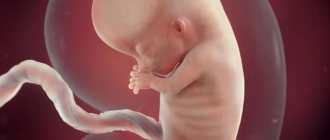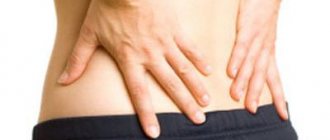Toxicosis during pregnancy is not uncommon. Sometimes it is toxicosis that makes it possible to recognize pregnancy in the early stages, since already from 4 weeks the expectant mother may feel weakness, nausea, and bouts of vomiting.
But, fortunately, not all women experience these unpleasant sensations. Many people carry a child and do not know at what time toxicosis begins and how strong it can be.
Signs of toxicosis include:
- loss of appetite,
- increased salivation,
- lethargy, fatigue, drowsiness, dizziness,
- change in taste preferences,
- aversion to certain smells,
- vomiting, nausea, heartburn.
If a woman is destined to experience all or some of these signs, this means that she is susceptible to toxicosis.
If we talk about early toxicosis, then it tends to appear at 4-5 weeks of pregnancy or later, and completely disappear by 16 weeks. Some notice signs of toxicosis from the first days of delay or even earlier. Late toxicosis can develop in the second and third trimester of pregnancy.
Why does toxicosis develop?
Obstetricians and gynecologists explain this fact by the individuality of the body, the presence of chronic diseases, hormonal changes, stress and numerous external factors, but it has not yet been possible to identify a specific cause.
Doctors often explain the onset of toxicosis during pregnancy for two reasons:
Firstly, hormonal levels change. The fertilized egg enters the uterus, where implantation of the fertilized egg occurs. As a result of the vital activity of the embryo, human chorionic gonadotropin, a glycoprotein, is released into the woman’s blood. In addition, the level of the hormones progesterone and estrogen increases in the body of a pregnant woman. By week 10, the level of hCG in the blood reaches its maximum.
It is the presence of this hormone in a woman’s blood and urine that confirms the fact of pregnancy. Naturally, the body reacts to a sharp release of hormones. At the same time, even a specialist will not be able to name the exact date on which day toxicosis begins or how many weeks toxicosis begins, since the course of pregnancy in each case is a purely individual process.
Secondly, a common cause for toxicosis is the emotional state of a woman. Especially if the pregnancy is unplanned or the pregnant woman has fear for her future fate and health. In families where the pregnancy is long-awaited, the woman is often afraid for the further preservation of the fetus and pregnancy, and the experience of unsuccessful pregnancies increases the feeling of fear. It happens that a pregnant woman waits until after toxicosis begins in order to make sure of her pregnancy and its correct course, which causes even greater nervousness and uncertainty.
Increased excitability, stress, anxiety, and fear cause an increase in “stress hormones”, as a result of which the body again reacts to hormonal changes. Therefore, when toxicosis begins, you should calm down and mentally prepare yourself for a successful pregnancy and childbirth, your health will certainly improve.
Influence of hereditary factor
The hereditary factor largely determines at what week toxicosis begins, and whether it begins at all. If a mother carried her daughter to term and did not know what morning sickness was, then the likelihood that her daughter would also not feel signs of toxicosis is very high.
According to gynecologists, there is no clear answer to what month toxicosis begins. Just as there is no clear connection with a hereditary factor.
Much more often, doctors note the connection between toxicosis and problems of the gastrointestinal tract, the lifestyle and nutrition of the expectant mother.
How to deal with toxicosis during pregnancy at home
- Don't get out of bed abruptly in the morning. First, eat a handful of nuts or cookies prepared next to your bed in the evening.
- Eat small meals throughout the day, preferably every 2-3 hours.
- Frequent chewing helps a lot with nausea. Snack on lemon, nuts, dried fruits, mints, and tangerines. It is useful to chew cumin seeds or regular chewing gum for nausea.
- Try to exclude fried foods, pickles, chocolate and hard-to-digest foods from your diet.
- It has been proven that vitamin B6 reduces the manifestations of toxicosis, so your diet should include foods rich in it: fish, eggs, skinless chicken, nuts and legumes (beans, peas, lentils). Avocados contain large amounts of vitamin B6.
- Ginger has an antiemetic effect: it can be added to tea or simply chewed. Any products with added ginger (for example, ginger cookies) will help overcome the urge to vomit.
- Food should be light, but nutritious and contain all useful substances: fruits, unleavened cereals with water, bread.
- But if you really want it, eat what you want.
- You need to eat while lying down slightly. Or immediately after a meal, lie down for a while to rest.
- In case of toxicosis, it is necessary to eat warm or chilled food.
- Get into the habit of drinking a glass of water every morning on an empty stomach - this will reduce the feeling of nausea and help cope with illness.
- Drink alkaline mineral water without gas, after heating it.
- In general, drink plenty of fluids, but in small portions. Chamomile tea, cranberry juice, freshly squeezed apple juice, green tea with lemon, rosehip infusion, water with lemon juice and honey are especially useful.
- If you are drooling, it is good to rinse your mouth with infusions of chamomile, sage, and mint.
- Also take infusions of calendula, valerian, yarrow and mint: these plants stop spasms, have a beneficial effect on the gastrointestinal tract and perfectly calm the nerves.
- A proven remedy for combating toxicosis is mint. Based on it, you can prepare a tincture for toxicosis. Take two teaspoons of dry mint, a teaspoon of valerian root, two teaspoons of calendula flowers and the same amount of yarrow herb. The mixture needs to be poured with 400 ml of boiling water, left for 30 minutes and strained. Take two to three tablespoons six times a day in three courses of 25 days with 15-day breaks.
- Spend more time outdoors.
- Constantly ventilate the kitchen and use a hood to prevent odors from irritating you.
Don’t despair and believe in the best: it will end very soon. Early toxicosis, as a rule, stops by the beginning of the second trimester of pregnancy. However, late toxicosis also occurs - gestosis (in the second and third trimesters of pregnancy). Therefore, all our advice may still be very useful to you. And after giving birth, everything will definitely pass!
Especially for beremennost.net – Elena Kichak
- If you don't eat after 3
- How to wean your baby off pacifiers
- Where and who can help
- Where can you get a blood transfusion in Moscow?
- How often can you take antibiotics?
Why is toxicosis dangerous?
A woman can feel the first signs and determine pregnancy much earlier than tests and ultrasound. When toxicosis begins, 2-3 weeks may pass from conception.
It is believed that early toxicosis is less dangerous than late toxicosis. Since toxicosis begins suddenly in the early stages, it also ends suddenly by the beginning or middle of the second trimester.
Preeclampsia (or toxicosis in later stages) manifests itself in a constant urge to vomit, the sense of smell is heightened, a woman’s irritation increases, and mood swings are a common occurrence with preeclampsia.
At the same time, swelling appears, protein in the urine increases, and blood pressure may “jump.” The brighter the symptoms, the more difficult the pregnancy is. This condition requires medical monitoring and elimination of the causes of gestosis. Treatment is selected individually and includes adjustments to the pregnant woman’s diet and lifestyle.
The complexity of treatment and the severity of gestosis depends on the level of intoxication. In any case, when toxicosis begins during late pregnancy, you must inform your gynecologist.
Diagnosis and treatment of toxicosis
What to do if you have toxicosis? To accurately determine the nature of toxicosis, you need to contact a gynecologist. He will prescribe all the necessary tests , including:
- general blood analysis;
- blood chemistry;
- analysis for ketone bodies;
- general urine analysis.
The doctor will also ask the patient about all the details of the pregnancy. Based on the information received, treatment will be prescribed, if necessary.
How to treat toxicosis in early pregnancy? If toxicosis is caused by some serious illness, then therapy will be aimed at eliminating the root cause. In ordinary cases, when toxicosis is normal, the following remedies are used to eliminate unpleasant symptoms:
- Immunocytotherapy is the introduction of the father's lymphocytes into the mother's body. This will prevent rejection of the fetus, which is sometimes rejected by the mother's body as a foreign body.
- Aromatherapy is the use of aromas of essential oils that can combat the feeling of nausea.
- Vitamin therapy is taking vitamin complexes to compensate for the lack of certain substances.
- Therapeutic exercise is a set of exercises to improve physical condition. This helps increase blood circulation and speed up the elimination of toxins.
Each case of toxicosis should be examined by a doctor who will prescribe appropriate treatment. Medications are dangerous for pregnant women, so regular pills for nausea or other ailments are not suitable , as they pose a threat to the unborn child. You should not self-medicate so as not to aggravate the situation. It is better to follow preventive measures during pregnancy to improve the condition.
Prevention of toxicosis
The best prevention of toxicosis will be the following actions:
- Refusal of bad habits and balanced nutrition. Avoid alcohol, cigarettes, spicy and fatty foods.
- If strong odors irritate you, eliminate the cause. When toxicosis begins in pregnant women, the previously pleasant aroma of perfumes, cosmetics, air fresheners, coffee and some food products can cause disgust. All this needs to be excluded.
- Avoid overtiring. Healthy sleep and a walk in the fresh air strengthen physical and moral balance during pregnancy. Nausea and motion sickness in city transport are also some of the signs of toxicosis that can be eliminated if you use public transport less often.
- When toxicosis begins, it is often recommended to eat small meals. Frequent meals can reduce nausea, and small portions are easier to digest without causing heartburn. In addition, with this diet you can avoid problems with gaining excess weight.
- One of the most accessible and proven remedies for nausea is mint leaves. They can be brewed into tea. Have mint candies with you, but mint chewing gum, on the contrary, will make you feel worse.
- Don't forget to take a multivitamin with high selenium content. They contain the necessary complex of minerals, vitamins and microelements. If vitamins do not relieve nausea and vomiting, they will help restore your strength and replenish lost substances.
Author: editors of the Mama66 portal, Lada Sergeeva, practicing gynecologist
Causes of toxicosis
The main causes of side effects during pregnancy are hormonal changes and metabolic disorders, when the body is rebuilt for the development and gestation of the fetus. As a result, this affects your well-being, leading to nausea. Also, there are a number of factors that can increase the symptoms of toxicosis and lead to complications:
- early pregnancy (up to 16 years);
- heredity;
- presence of chronic diseases;
- weak immunity;
- gastrointestinal diseases;
- smoking and drinking alcohol;
- acute diseases of the liver and thyroid gland;
- frequent stress and nervous strain;
- physical fatigue;
- unhealthy diet.
It is believed that increased toxicosis is associated with protective reactions of the fetus , that is, it thus sends a signal about some kind of violation, primarily this may be associated with lifestyle, such as smoking or overwork. Therefore, you should pay attention to the nature of toxicosis and notice changes that increase the severity of symptoms.
Is the absence of toxicosis normal or pathological?
If there is no toxicosis during pregnancy, then this is normal. Advantages of no toxicosis:
- there is no risk of premature birth (or miscarriage) due to late or severe toxicosis;
- the fetus fully develops, its body actively “absorbs” nutrients, organ development occurs without pathologies or abnormalities;
- The pregnant woman’s mood is always positive, she enjoys her “interesting” position, she is not tormented by unpleasant symptoms, depression and neuroses.
It is wrong to believe that pregnancy and toxicosis are inextricably linked. Many expectant mothers are sure that pregnancy must be accompanied by toxicosis and a deterioration in their general condition. This is a misconception. The absence of toxicosis indicates that the woman is absolutely healthy. This means that her body easily adapts to the new regime and adapts perfectly to the emergence of a “new life”.
What hormonal medications did you take to stimulate ovulation?
- Gonal 33%, 3499 votes
3499 votes 33%3499 votes - 33% of all votes
- Clostilbegit 25%, 2618 votes
2618 votes 25%
2618 votes - 25% of all votes
- Menopur 16%, 1703 votes
1703 votes 16%
1703 votes - 16% of all votes
- Puregon 14%, 1522 votes
1522 votes 14%
1522 votes - 14% of all votes
- Decayed 9%, 909 votes
909 votes 9%
909 votes - 9% of all votes
- Menogon 3%, 322 votes
322 votes 3%
322 votes - 3% of all votes
Total votes: 10573
Votes: 7778
January 17, 2018
×
You or from your IP have already voted.
4 causes of toxicosis in a pregnant woman
Despite numerous studies, medicine has not been able to find the true basis for “pregnant” toxicosis. There are only theories on the basis of which one can assume why women begin to experience toxicosis after conception.
Hormonal theory
Rapidly progressing toxicosis may be the body's reaction to large-scale hormonal changes, which begin simultaneously with the appearance of a new organ - the placenta. When the level of hCG in the blood peaks, the severity of toxicosis also reaches its peak. This moment is especially felt by mothers with multiple pregnancies.
Hereditary theory
Toxicosis can be passed on “by inheritance” - this idea is taken as the basis of the hereditary (otherwise known as genetic) theory. If all pregnancies of female relatives were complicated by toxic manifestations, then, with a high probability, this fate awaits the currently pregnant woman.
Immune theory
This theory considers the situation of how toxicosis begins in a pregnant woman due to the body’s production of antibodies to intrauterine life, which is perceived as foreign tissue.
How to reduce toxicosis?
Pregnant women who are faced with this condition are often concerned about how long toxicosis lasts and whether it is possible to somehow alleviate their condition. It is worth noting that if severe toxicosis is observed, treatment should only be prescribed by a doctor. If you are concerned about toxicosis in a mild form, then you can try to use proven folk recipes and tips to alleviate this condition (see What helps with toxicosis during pregnancy: the causes of pathology, as well as safe and effective methods of combating toxicosis).
What exactly will help improve the condition can only be determined experimentally, since the body of each pregnant woman is individual and different methods are suitable for everyone. The main ones are presented in the table.
The exciting period of bearing a baby can be accompanied by a number of unpleasant phenomena. One of the most common is toxicosis. Almost every second woman experiences some signs of toxicosis during pregnancy. Such a high probability of toxicosis has led to the fact that many people perceive it as a natural manifestation of a normal pregnancy. Meanwhile, experts do not think so.
Signs
Among the main signs that indicate that toxicosis begins during pregnancy are the following:
- Nausea (probably the most important sign by which girls often determine their pregnancy).
- Increased salivation.
- Absence or, conversely, increase in appetite.
- Weakness, apathy, loss of strength, which are usually accompanied by a constant desire to sleep.
- Weight loss (you shouldn’t be happy that you are not gaining weight, but losing it. Remember that this is wrong. Some dangerous processes have begun in the body that can harm your baby. You should be the vessel that fills, and not the one from which All vital energy goes away, even though you begin to experience toxicosis during pregnancy).
As for nausea, it is classified according to its severity. There are mild vomiting, which occurs 4-5 times a day and is mainly associated with meals. At the same time, the woman loses weight, which totals 2-3 kg.
Moderate toxicosis is characterized by an increase in the amount of nausea and its frequency up to 10 times a day. At the same time, you lose weight about 4-5 kg.
Severe forms of toxicosis are manifested in constant nausea, vomiting (20-25 times a day) and weight loss of more than 10 kg. In addition, the woman in labor experiences a number of other dangerous signs: low blood pressure, bad breath, rapid heartbeat, and kidney problems. A woman reacts poorly to the environment, her actions are characterized by slowness and sluggishness. Basically, with this form of toxicosis, pregnancy is terminated artificially.
Prevention of symptoms
It is impossible to insure yourself against the occurrence of toxicosis 100 percent, but the factors of its occurrence can be removed. This in turn will minimize the occurrence of symptoms. There are some rules on how a pregnant woman should behave so that toxicosis does not manifest itself:
- When you wake up, don't rush to have a big breakfast right away. First, start your stomach with a glass of water at room temperature and after 10-15 minutes, eat a piece of bread or cookies. Dried fruits are also suitable.
- If you feel like you are starting to feel nauseous, suck on a piece of lemon or orange. The sour taste of these fruits is the best way to cope with nausea rising in the throat. Be very careful! If it doesn't help, better stop. Every woman's body is individual. For some women, acidic foods only make symptoms worse.
- Don't experiment with drinks. It’s better to drink what your body has long been accustomed to. No matter how delicious a new drink may seem, you may simply not appreciate it because of one insidious ingredient.
- Not only drinks, but also fruits with a high fluid content are considered very useful for toxicosis or for its prevention. Try to eat watermelons and melons more often.
- Avoid spicy and fried foods. It's hard for your stomach to digest something like that. Try to eat meat, fish and vegetables boiled or, even better, steamed. Dairy products, fruits and vegetables will not only please your baby, but will also give your stomach and intestines rest. Believe me, they have a very hard time.
- Try to eat little and often. This, as mentioned above, will help relieve your stomach. Such rules do not mean at all that you need to give up everything delicious or become a vegetarian. You can treat yourself to something sweet and tasty, just do it wisely. You yourself will have to reset all this after pregnancy. Just because you eat for two doesn't mean you won't gain weight. You don’t know how much food the baby takes on and how much is deposited on the sides.
- Do not take a horizontal position immediately after eating. First you need to be a little active or at least take a reclining position. Otherwise, everything you eat will immediately rise to your throat.
- A good and, moreover, long-tested method of combating symptoms is honey. You just have to suck on a teaspoon of this product, and the nausea will go away.
Take care of yourself and your health. Try to walk in the fresh air more often, without closing yourself within 4 walls. Enjoy life and let positive emotions fill your life with bright colors. An excellent solution would be to sign up for yoga. Special breathing techniques will not only help you calm your nerves and recharge yourself with positivity for the rest of the day, but will also teach you how to fight nausea.
In our article, we tried to highlight all the main problems and causes of toxicosis, as well as understand what week it begins during pregnancy. If some things were not fully displayed above, we recommend that you watch this video:
What week does toxicosis begin: how does it manifest?
Rate this entry
Toxicosis is on the way - the time of onset of the disease
Manifestations of a disease called toxicosis occur completely spontaneously. Negative symptoms can completely bypass pregnancy - many women have never experienced nausea during the entire period of bearing a child. But, nevertheless, more than half of expectant mothers experience all the “delights” of toxicosis in the early stages.
It is difficult to unambiguously answer the question of when toxicosis begins during pregnancy - the timing of toxic manifestations is purely individual.
According to medical statistics, several periods of toxicosis occur. Among them are 4 main ones:
- Before pregnancy is confirmed, a pregnant woman may begin to feel sick even before two lines appear on the test, a day or two before the next period is missed (26-35 days of the cycle);
- In the first weeks of pregnancy, early toxicosis often haunts a pregnant woman from 4-5 weeks of pregnancy, especially if her first child is expected. Often the state of general malaise during this period is a consequence of hormonal changes in the body;
- From the second month of pregnancy - in most cases, symptoms of toxicosis in women begin to gain momentum precisely from this period (7-8 weeks of pregnancy) and last until the first screening;
- Late toxicosis, called gestosis, occurs in the last trimester of pregnancy, is considered a serious complication and requires close medical supervision.
Symptoms, signs and dangers
The main signs and symptoms of toxicosis include:
- nausea, often morning;
- vomit;
- increased sensitivity to aromas;
- decreased performance;
- dizziness;
- increased secretion of the salivary glands;
- decreased appetite.
Less commonly, toxicosis manifests itself with more serious symptoms: impaired bone structure, bronchial asthma, uncontrollable vomiting, skin diseases (itching, inflammation, etc.).
There are 3 degrees of early toxicosis in pregnant women.
In mild forms of the pathology, vomiting is absent or occurs no more than 5 times a day. The woman's general condition is satisfactory.
In moderate cases, vomiting up to 10 times a day, increased heart rate, and decreased blood pressure are diagnosed. There are abnormalities in urine and blood tests; a woman can lose up to 3 kg in 2 weeks.
In severe cases of pathology, the expectant mother complains of uncontrollable vomiting, severe general condition, and sudden loss of body weight. Her urine and blood tests reveal significant abnormalities.
Attention! Toxicosis can be observed from 5 to 17 weeks (up to 18 in case of multiple pregnancy); an earlier onset is impossible for physiological reasons.
A mild degree of toxicosis does not pose a threat to the body of the mother and child, and therefore does not require drug treatment. More severe forms of pathology can lead to dehydration, impaired kidney, heart and lung function. Prolonged vomiting causes loss of valuable substances (electrolytes, proteins, vitamins, etc.).
The appearance of toxicosis symptoms during pregnancy does not have a clear start and end date. Some women do not experience nausea or other complaints at all, which is the norm, but most expectant mothers experience this pathology.
Typically, toxicosis begins at 6 obstetric weeks and ends by 16-17 weeks. In multiple pregnancies, nausea and other symptoms may continue until the 18th week of gestation.
Typically, the earlier symptoms of toxicosis appear, the more severe its course. However, the minimum time of onset of this pathology corresponds to the fifth week of pregnancy. Nausea, vomiting, and dizziness may appear only a week after the fertilized egg has implanted in the uterine wall, which is observed 7-8 days after fertilization. Therefore, toxicosis in the first week after conception (corresponding to 3-4 obstetric weeks) is impossible. Nausea at this stage is a consequence of errors in the diet or psychological stress.
When nausea and vomiting continue for more than 16 weeks (or 18 in case of multiple pregnancy), doctors talk about gestosis - late toxicosis of pregnant women. It is characterized by a triad of symptoms: protein in the urine, arterial hypertension, edema. This disease increases the risk of developing severe complications - placental abruption, hypertensive crisis, ischemic stroke, etc. Therefore, women with symptoms of gestosis should be under strict medical supervision.
How to alleviate the condition of toxicosis?
Despite the fact that toxicosis is associated with one of the most anticipated, desired and happiest periods of a woman’s life, nausea and vomiting can seriously weaken the body and lead to psycho-emotional instability
. Therefore, it is necessary to deal with unpleasant sensations using the experience of other mothers.
It is impossible to completely get rid of the manifestations of toxicosis without the use of medications. But the use of drugs is contraindicated for women, especially in the early stages, when placental protection does not work and even harmless drugs can be accompanied by a teratogenic effect on the fetus.
Many women find relief from eating fruits with a sweet and sour taste.
. If nausea occurs, it is recommended to eat a piece of apple, kiwi, or grape. These fruits reduce discomfort in early and late pregnancy. Try baking green apples - their sour taste fights off nausea. If you feel sick in vehicles, you can eat lemon lozenges and drink liquid with lemon. Ginger is believed to be good for nausea. But it should not be abused due to the presence of essential oils.
If vomiting occurs in the morning, it is recommended to have breakfast without getting out of bed. This method relieved some pregnant women from severe toxicosis. Try to drink less liquid in the morning so as not to provoke vomiting. Perhaps breakfast should be replaced by chewing a few crackers or toast. Dry food usually does not cause vomiting
. Postpone a full meal until a few hours later, when the severe attack of nausea has disappeared.









